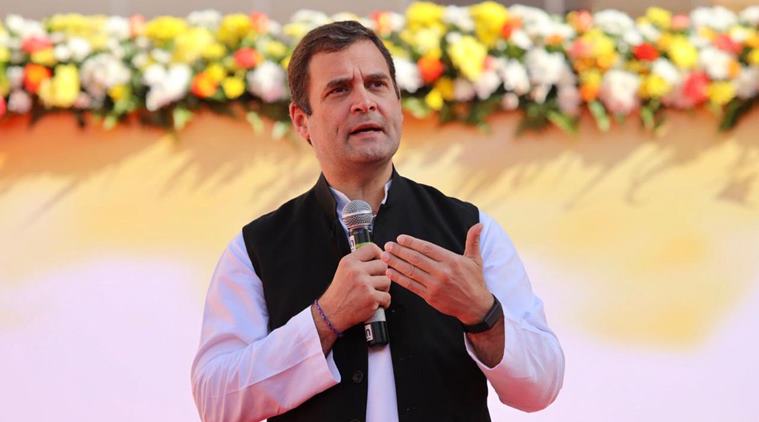No shortcuts to income guarantee
Rahul Gandhi’s proposed scheme will do more harm than good if it comes at the cost of existing subsidies for the poor.

Congress president Rahul Gandhi signaled the earnestness of his party’s resolve to end poverty and hunger by announcing an untried policy instrument — a Minimum Income Guarantee for the poor. “Millions of our brothers and sisters” could not be allowed to “suffer the scourge of poverty” while we “build a new India,” he said. The details of this new policy instrument are not officially available. But Congress sources indicate that this income transfer will target the poor with a minimum income of Rs 1,000 to Rs 1,800 a month. With this, according to Rahul Gandhi, “No one will be poor or go hungry in India.”
His announcement, however limited, stirs some hope. It suggests an acknowledgment that massive market-led economic growth, by itself, cannot raise millions out of grinding poverty. This requires, with rapid growth, sensitively-designed direct state support to families who live with want. It affirms that the Congress must strive to build a redistributive welfare state. Some initial steps were taken for this when the UPA held office, but have been broken in recent years.
But the declaration still raises many more questions than it answers. These relate to how these households will be identified, what the scale of assistance would be, how the required resources will be raised, and what other elements of social protection, if any, would together with income-transfers constitute an iron-clad defence against poverty. Innumerable studies, including official studies, suggest that the most poor and socially powerless have a greater chance of being excluded by governments than included by them. There is no objective way of evaluating incomes of households in the informal sector and poverty-selections give far too much discretion to the field bureaucracy, leading to enormous rent-seeking, excluding those most socially vulnerable by age, gender, caste, religious identity, migration, disability and geography.
Initial reports suggest — alarmingly — that the funds required for such transfers will be re-appropriated from those spent on food subsidies and other programmes. If minimum income transfers are envisaged as substitutes to food and other existing food and social protection transfers, these are likely not to reduce hunger but will only aggravate it. Culturally, decisions about food tend to be taken by women. So food transfers are far more likely to end up as food in the stomach of a child, than cash transfers, decisions about which tend to be taken by men. Cash transfers also are inflationary in ways that food transfers are not.
It is not that India cannot afford an income-support programme. Just that the pathway to this cannot be by cutting back on meagre existing subsidies to the poor. Subsidies to the middle-classes are thrice in quantum to those for the poor, and can be curtailed by a redistributive state. But most of all, as Oxfam reports, there is considerable scope in taxing the wealth of India’s super-rich dollar billionaires. If the Union budgets simply start by ending just the tax holidays to private businesses (in terms of revenues forgone, to the tune of over Rs 5 trillion), they could fund far greater social spending, whether for income transfers, or health, education and social protection.
Income transfers to the poor can work only if these augment, not substitute, the existing support to the poor. Welfare campaigners have for long demanded several kinds of cash transfers. These include universal pensions for the aged, single women-headed households, and persons with disability, equivalent to at least half the prevailing minimum wage. There is also a strong case for maternity benefits for all women in informal work, equivalent to six months’ minimum wages, to bring some parity with women in the formal sector, enabling them rest, nutrition, breast-feeding and childcare.










.png)




























No hay comentarios:
Publicar un comentario